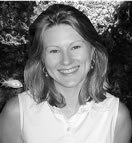 Melissa Phipps is the Aquarium Curator at the Riverbanks Zoological Park and Botanical Garden in Columbia, South Carolina. She began her career as a volunteer with no animal husbandry experience and received the training she needed on the job. “A university education doesn’t teach you how to keep fish alive,” she says, explaining that at this point hands-on experience is the only real training aquarists can get.
Melissa Phipps is the Aquarium Curator at the Riverbanks Zoological Park and Botanical Garden in Columbia, South Carolina. She began her career as a volunteer with no animal husbandry experience and received the training she needed on the job. “A university education doesn’t teach you how to keep fish alive,” she says, explaining that at this point hands-on experience is the only real training aquarists can get.
Phipps is responsible for the entire Aquarium at Riverbanks. The building has been open since 1989 and receives an average of 1 million visitors each year.
Her responsibilities are wide-ranging. These include:
- Establishing/implementing husbandry protocols (including how much and when to feed, medicines, quarantine protocols, changing water, etc.)
- Overseeing the operations/maintenance of life support systems
- Establishing/managing the collection plan
- Designing and overseeing construction of new exhibits (including interpretive materials)
- Acting as institutional representative for all the aquatic taxonomic advisory groups
- Propagating algae and all other aquarium plants
- Managing aquarium staff and volunteers/interns
- Procuring all supplies/equipment
"A university education doesn’t teach you how to keep fish alive"
In Phipps’ view, the most important skill for her position is the ability to “read” the animals. “It’s intuitive; you can’t teach it,” she says. “You have to know when they’re thriving, and you must catch signs of any problems before you have a full-blown disease on your hands.”
Other important skills and knowledge include fish medicine, understanding the chemical interactions within a body of water, and using hand tools. “There is no formal training for much of this, so you have to start from scratch,” Phipps says.
"Anyone who wants to be an aquarist must get as much hands-on experience as possible"
Because there are no formal training programs in animal husbandry, aquarists tend to learn their jobs by volunteering. Phipps is a perfect example: she began volunteering when the aquarium first opened and eventually was hired because the staff was impressed with her dedication and hard work. She worked her way up the ladder to her present position while attending school part-time to earn a B.S. in marine science (which she will receive in May).
Anyone who wants to be an aquarist must get as much hands-on experience as possible, Phipps emphasizes. “Take care of aquaria in your home and volunteer at a local aquarium,” she advises. “I usually hire from among my volunteers, and only go outside that group if I have to,” she adds.
The most enjoyable aspect of Phipps’ job is seeing the animals thrive and reproduce. “We get a lot of reproduction here, and to know that’s a result of my decisions regarding our husbandry parameters is very satisfying,” she says.
<< Back to Profiles Start Page
|
|
